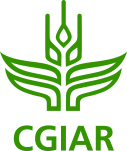What do Uzbek Beekeepers, Farmers, and Beekeeper Association Members think about a new apiary management app?
Published on: April 12, 2021, Submitted by Laura Becker on: April 9, 2021
Participants at the March 2021 Inception Workshop for the AI-Driven Climate-Smart Beekeeping for Women Project in Uzbekistan
On 17 March, we launched our AI-Driven Climate Smart Beekeeping for Women (AID-CSB) project in Uzbekistan. Aiming to support biodiversity and enable improved hive management, AID-CSB will use a participatory design and user-research process with women beekeepers in Uzbekistan to localize and pilot a beekeeping companion app. We held a hybrid in-person and virtual workshop to introduce the project, connect with stakeholders, and plan next steps. During the Q&A session, Uzbek beekeepers, farmers, and members of the Uzbekistan Beekeeper Association shared rich insights and thoughtful questions. Here are some of the main topics raised by the local stakeholders involved:
1. Sustainability & longevity
Too often, smartphone applications and international development projects end when the funding stops, cutting off users who benefit from the app. A related concern was raised by the Uzbekistan Beekeeper Association, wondering who will be responsible for the app and its maintenance after the project concludes.
While the AID-CSB project is scheduled to end in December 2021, the app will continue operating. In the short-term, HiveTracks will cover the cost of app maintenance into 2022. For the long-term, we will soon organize an Intellectual Property (IP) workshop to discuss financing mechanisms, ongoing ownership, and maintenance of the app. HiveTracks CEO Max Runzel states: “Our goal is to ensure that all beekeepers continue to have access to the app and that we can improve it over time, adding new features and extended functionality that link beekeepers to local and international markets. To do so, we are working towards finding a financially sustainable model with our project and funding partner.”
2. Women Beekeepers & Mobility
Several beekeepers asked about what support the app could provide when bees are moved and when women are not able to travel with the bees.
HiveTracks CTO James Wilkes sees this as an opportunity for technology to mitigate traditional barriers for women beekeepers, by which they can be aware of what is happening in the field with their bees, without needing to be physically present: “A long standing vision for HiveTracks has been to leverage technology to provide key decision-making information to a beekeeper regardless of their location, and this use case is a great example that demonstrates the value of that vision.”
3. Interest in market information
Beekeeper and apiculture researcher Farida Kuldasheva, PhD, expressed interest in the possibility of accessing market data-- such as the value of honey, byproducts, and market prices-- through the app. She inquired about the possibility of including this type of information in future versions of the app.
Hearing interests and needs of beekeepers like Farida are not only key to the customization and usefulness of our app, but also give insights on ways we may consider expanding the app’s capabilities in the future. While this current pilot project has limited capacity to integrate market data, doing so is feasible and would be a great opportunity for a follow-up project.
4. Existing use of applications for beekeeper communications
Workshop participants expressed that while this is the first time a beekeeping app is being designed for beekeepers in Uzbekistan, they do use an array of other apps to communicate -- including Telegram, Whatsapp, and WeChat. Through these channels, they share news and information about weather, blooming periods, and market prices.
Project Coordinator Laura Becker finds this particularly exciting as it indicates:
(1) Beekeepers are already using technology to communicate and share information, demonstrating demand for communication tools and technological support for beekeepers.
(2) There is baseline digital literacy among beekeepers.
(3) We can get involved in these channels to understand existing concerns and interests of beekeepers.
(4) Once launched, we can share our app through existing channels with a wide audience of beekeepers.
We were thrilled to have such a high level of engagement from Uzbek Beekeepers, Farmers, and Beekeeper Association Members. From their feedback, we have learned more about the characteristics and needs of the beekeeper community in Uzbekistan, while also identifying further areas to explore, such as the dynamics of women beekeepers who move their bees. We are currently working with the Uzbekistan Beekeeper Association to gather additional baseline data to support the development of the app and look forward to engaging directly with our participating women beekeepers through a user research process in the coming months.
Acknowledgement
Project Partner: HiveTracks
Project Donor: German Federal Foreign Office




.jpg)